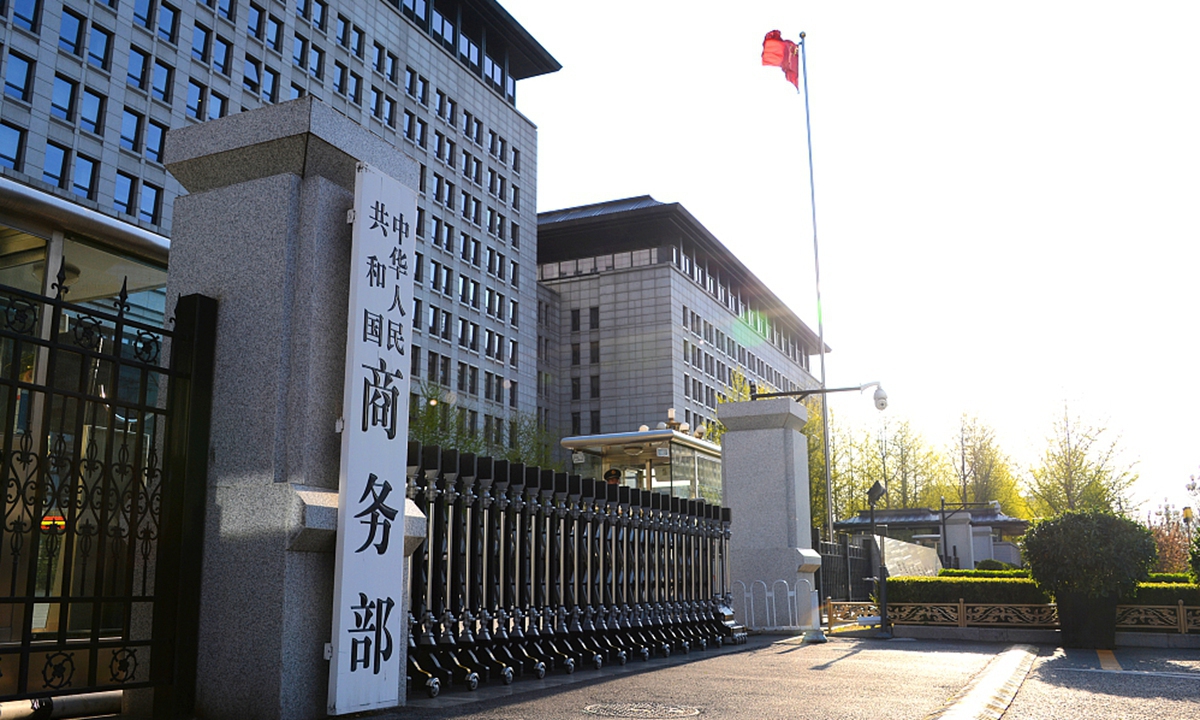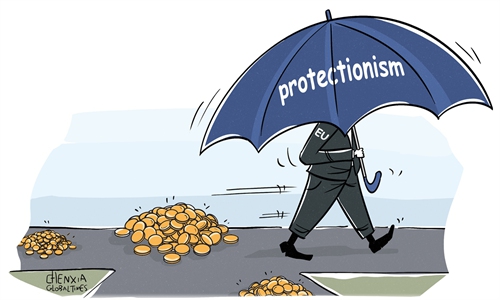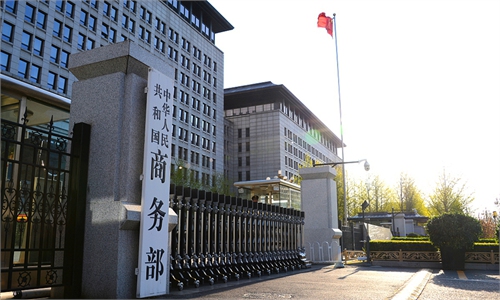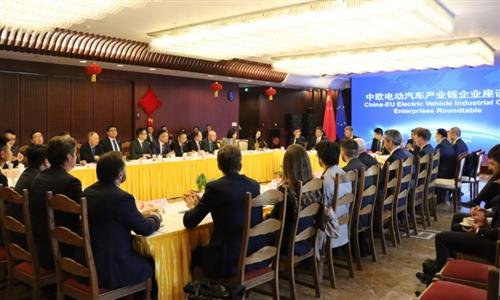EU's tariff adjustment on Chinese EVs has not fundamentally changed its wrong approach: Ministry of Commerce

The Ministry of Commerce Photo: VCG
China "does not recognize nor accept" the EU's final ruling on the anti-subsidy investigation into China-made electric vehicles (EVs), a spokesperson for the Ministry of Commerce (MOFCOM) said on Thursday, regarding a question on EU's tariff adjustment - the rates announced in October were down from July.
"We have noted that the tariff rates in the final ruling (released in October) have been adjusted from the rates in the preliminary ruling in July, but the European side has not fundamentally changed its wrong approach. The ruling is not in line with WTO rules and fails to address the core concerns of Chinese and European businesses. China does not recognize nor accept it," He Yadong, a spokesperson for the MOFCOM, said on Thursday during a press conference.
The EU has followed many unreasonable and non-compliant practices in the anti-subsidy investigation of China-made EVs. China has always put forward a comprehensive defense and submitted a large number of comments and evidential materials to the EU, which have not been fully considered, He stressed.
Regarding reports saying that China has advised Chinese car companies to suspend business expansion and investment plans in Europe, He noted that China has always supported and encouraged mutually beneficial and normal economic, trade and investment cooperation in the automotive industry with Europe.
"China consistently adopts an open and cooperative attitude, adheres to a market-oriented approach, bases itself on full competition, and cooperates with relevant countries in the EV industry through trade, investment and technology, and jointly maintains the stability of the global automotive industry chain and supply chain," said He.
"China is also committed to the green and low-carbon transformation and jointly addressing climate change," said the spokesperson.
The Chinese business community, especially the EV industry, is highly concerned about the EU's tariff ruling, and it has expressed deep regret at and firm opposition to the final ruling issued by the EU, Sun Xiao, a spokesperson for the China Council for the Promotion of International Trade, told a press conference on Thursday.
On Tuesday (EU time), the European Commission (EC) concluded its anti-subsidy investigation by imposing definitive countervailing duties on imports of battery EVs from China for a period of five years, the commission said in a press release seen on its website on Tuesday.
Shanghai-based carmaker SAIC Motor Corp, faces 35.3 percent additional tariffs on top of the existing 10 percent, Geely Automobile Holdings faces an additional 18.8 percent, and BYD Co faces additional tariffs of 17 percent.
Other Chinese EV makers face an average duty of 20.7 percent, with a maximum of 35.3 percent for those deemed "non-cooperative," according to a document seen in the Official Journal of the EU.
In July, the additional tariff on SAIC Motor EVs stood at 37.6 percent. Geely was charged 19.9 percent in additional tariffs while BYD faced 17.4 percent. Other companies that cooperated with the EU investigation were levied an average additional tariff rate of 20.8 percent, while those that did not were charged 37.6 percent, according to an EC statement.
The EU acts as a common entity over trade matters so EU member states cannot interfere, but Finland hopes the EU and China will keep the conversation going on the EV import tariff issue to avoid misunderstandings, Finnish President Alexander Stubb told yicai.com in Shanghai on Thursday during his state visit to China.
The EU's punitive tariffs on Chinese EVs are another hit to Europe's competitiveness, said Hungarian Foreign Minister Péter Szijjártó on Thursday in Budapest, emphasizing that the measure doesn't serve the interests of EU nations or companies.
Szijjártó criticized the EC for imposing these tariffs despite opposition from EU member states and major auto industry players, with only 10 of 27 countries voting in favor. "Whose interests does this serve? Certainly not those of EU countries or automakers," he said, adding that Europe's EV strategy relies on cooperation with Chinese suppliers.
"The German Federal Government seeks fair competition, but not a trade war with tariffs, and has therefore voted against their (the EU's) implementation," Michael Schumann, chairman of the Board of the Federal Association for Economic Development and Foreign Trade, told the Global Times.
The EU would also lose credibility as it had been pushing electric cars by all means for years for reasons of climate protection, but now it has obstructed foreign suppliers that could contribute to the realization of the proclaimed targets, said Schumann.
In previous negotiations, the EU did not show enough sincerity to address the core concerns of the Chinese and European industries, Wu Shuocheng, a veteran automobile industry analyst, told the Global Times, noting that "there is pressure on the EC from within the bloc, not just from the EV industry."



